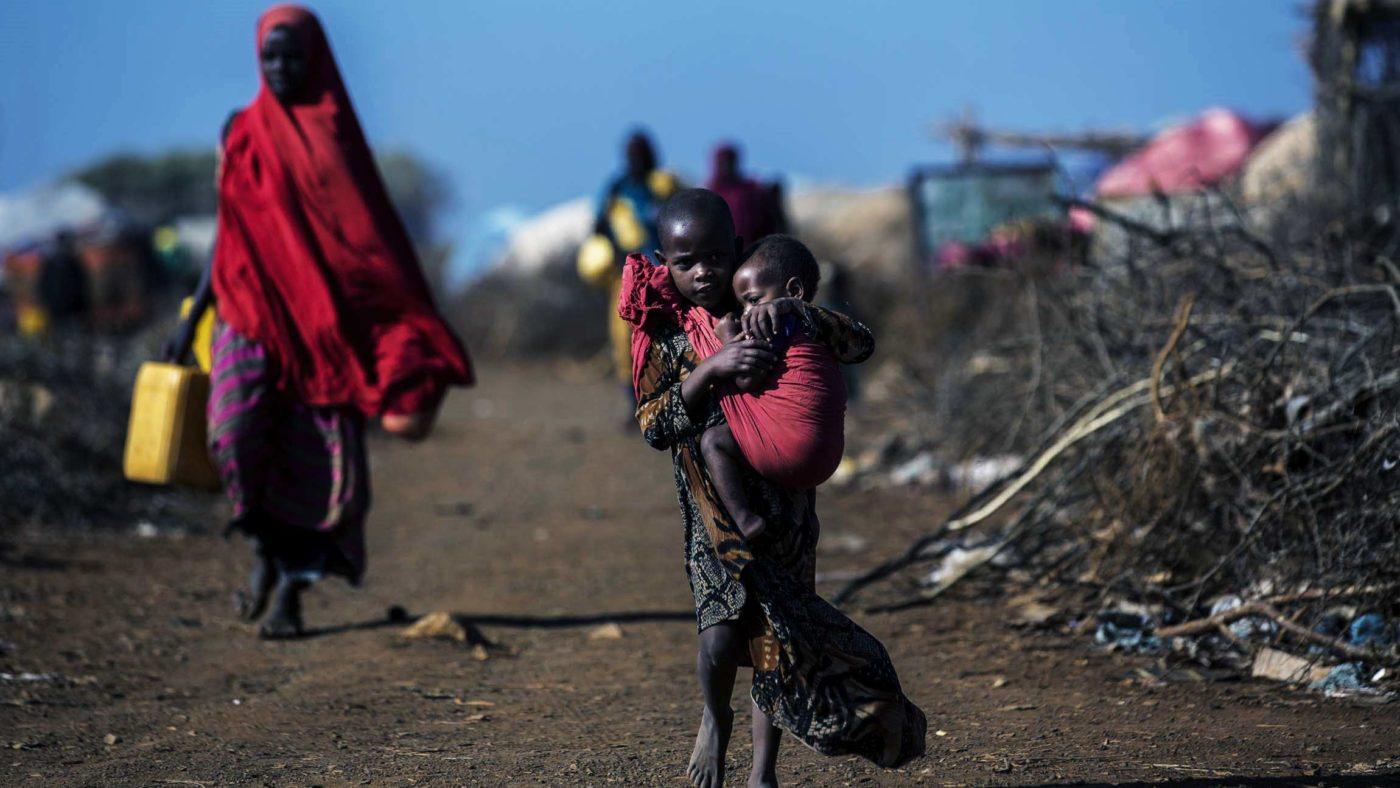Grinding poverty, drought, lack of healthcare and fragile government institutions may not always sit high on the agenda of those seeking to address piracy and violent extremism. Yet the link between political stability and development is a critical one that must be addressed by delegates at today’s UK Somalia Conference in London.
Somalia is facing famine. It is also witnessing a return of piracy in the Gulf of Aden and an insurgency from violent extremist group Al-Shabaab. Government, meanwhile, has been weak or non-existent for 25 years.
True, the country has just elected a new president, who could represent a new, promising start for the country. But it also means that much must be done now, not only focusing on military security, but also taking into account wider human needs. In order to support this fragile country, we can’t focus on security without also addressing humanitarian needs and considering its long-term development.
So the key message for delegates is the same that ONE’s co-founder, Bono, delivered to the Munich Security Conference this year: security without development is unsustainable, while development without security is impossible.
The conflation of security and development issues is a common characteristic in many of the world’s least stable places. On the other side of Africa, in Borno State in North East Nigeria and the region around Lake Chad, a convergence of extremes – extreme ideology, extreme poverty and extreme climate – has taken hold.
Boko Haram still holds sway across large swathes of land and this region, too, is facing famine. The outlook is bleak. With no schools, healthcare or economic opportunities – largely because these are prevented from taking root in the region by extremists – the current situation will worsen and lengthen, and become ever-more difficult to address.
As distant as these extremes may seem, we can’t afford to ignore them. Instability is a massive driving factor in migration. There are currently more displaced people in the world than ever before – and while most of them seek refuge in other parts of their country or in the region, some resort to ever-more risky journeys over land and sea.
Furthermore, it is the world’s poorest places, which lack basic infrastructure and services such as healthcare, that become fertile ground for vicious epidemics, such as Ebola, which respect no borders.
Supporting such a fragile country as Somalia is a huge challenge. Some are concerned that aid will end up in the pockets of corrupt and violent men, missing those it is intended for. But the suggestion that we should withdraw all help is misguided.
First, it would make the poorest pay twice: once since they already live with the toxic effects of corruption and then again when the lifeline they rely upon is withdrawn. Aid would, in fact, help us build a sustainable long-term response to fragility that would otherwise easily spill from one country to another. We need aid to address the needs of the poorest and most vulnerable people in the world.
Second, aid begets accountability. The high standards that must be met to receive aid encourage transparency and responsibility across the board. Organisations who spend aid money on health and education must be able to account for every penny.
Providing education, employment and ultimately empowerment gives people opportunity. Our aid must embrace these three Es, while also continuing its focus on poverty reduction, and building the stability, security and infrastructure necessary for prosperity to flourish.
These issues are paramount for Somalia, and this is why the UK, as host of this important conference, must ensure delegates deliver. With famine looming, Somalia is again on the brink, and needs urgent support and fresh thinking. That’s why development must feature as strongly as stability in our dicussions at the conference today. One will not be achieved without the other.


